 Ever been torn between swiping your card for a bag of pre-made compost or digging into the DIY dirt right in your backyard? We’ve all been there. Me and my family have been elbow-deep in composting (quite literally) for over four decades. I’ve had my hands in compost piles, vermicomposting bins, and all things organic matter since I can remember!
Ever been torn between swiping your card for a bag of pre-made compost or digging into the DIY dirt right in your backyard? We’ve all been there. Me and my family have been elbow-deep in composting (quite literally) for over four decades. I’ve had my hands in compost piles, vermicomposting bins, and all things organic matter since I can remember!
Today, I want to talk to you about a burning question that many of you have had on your mind: Is composting worth it? A lot of people wonder if it’s better to buy compost or take the DIY route and make your own compost at home.
So, we’ll dive into the nitty-gritty of making your own compost at home and explore the pros and cons of each earthy endeavor. So, pull up a chair and keep reading to see if you should buy or DIY your compost!
What Is Composting? A Closer Look Into the Earth’s Recycling System
Before we dive headfirst into the muddy world of composting, let’s start at the very beginning.
Compost is like nature’s recycling system, the art of turning organic materials – think vegetable scraps, coffee grounds, uneaten leftovers, and grade waste such as yard trimmings – into something extraordinary. We’re talking about that dark, crumbly stuff that works magic beneath the soil surface and breathes life into your garden. It’s like Mother Nature’s way of saying, “Don’t throw that food waste away; I’ve got bigger plans for it!”
How does the composting process work? Well, it’s all about the science of decay and renewal. Composting kicks off when you toss your food scraps and yard trimmings into a bin or a pile. From there, biological processes take over. The activity of soil microorganisms, like bacteria and fungi, breaks down the organic materials. Heat starts to build up, and before you know it, voilà! You’ve got nutrient-rich compost.
But why should you care about composting? What’s in it for you and your garden?
- Plant Power: Compost is like plant fuel on steroids. It’s loaded with essential nutrients that boost plant growth, making your veggies juicier, your flowers bloom brighter, and your shrubs stand taller.
- Soil Savior: Compost isn’t just about what’s in it; it’s also about what it does to your soil. It improves soil structure, making it more sponge-like and better at holding water. That means your garden won’t be thirsting for H2O, even during those scorching summer days.
- Extreme Weather Buddy: Compost can also be your garden’s wingman when extreme weather events strike. Droughts, floods, and forest fires may try to mess with your soil, but with compost in the mix, your soil’s resilience gets a mighty boost.
- Waste Warrior: Last but not least, composting is an eco-warrior’s dream. It helps reduce the volume of food waste that ends up in landfills, which is a win for our planet.
Is Homemade Compost Better than Store-Bought Compost?
Now that we’ve established the benefits of compost itself, it’s time to address the age-old dilemma: Should you buy compost or flex those DIY muscles and make your own compost at home?
When you’re wandering through the gardening store and come across those neatly packaged bags of dark, crumbly goodness, you might wonder, “Is composting worth it?”
Let me quickly break down the key pros and cons of each option:
Homemade Compost
- The key advantage here is that you have complete control over the composting process.
- It’s a fantastic way to recycle kitchen scraps and yard waste, turning them into a rich soil amendment.
- Homemade compost can be tailored to your specific garden’s needs, making it a highly personalized option.
- It’s an eco-friendly solution that reduces waste and the need for chemical fertilizers.
Store-Bought, Finished Compost
- It’s convenient; you can grab a bag and start gardening immediately.
- Quality can vary, and some commercial compost may contain unwanted chemicals or weed seeds.
- You may miss out on the satisfaction of creating your compost and the environmental benefits that come with it.
Why Is Composting Worth It? What Are the Benefits of Making Your Own Compost at Home?
Now, let’s dive into why you should consider embracing the messy but rewarding world of composting.
What are the benefits of rolling those sleeves? Why should you make your own compost at home instead of simply getting a ready-to-go bag?
1. Custom-Tailored Rich Soil Amendment
Does compost make the soil richer? Without a doubt! It improves soil structure, enhances water retention, and promotes a healthy microbial community underground, making soil significantly richer and more productive.
When you make your own compost at home, it gives you complete control over what goes into your compost, ensuring it’s free from any unwanted chemicals or additives commonly found in commercial products.
2. Reduces Waste
By composting kitchen scraps, yard waste, and other organic materials, you divert these materials from the landfill. This not only reduces waste but also lowers your carbon footprint and helps combat climate change.
Making your own compost adds an extra layer of environmental responsibility by reducing the need for plastic bags and the energy used in transporting store-bought compost to your home.
3. Saves Money
Why spend a fortune on commercial fertilizers and soil amendments when you can create your own natural fertilizer for free? If you make your own compost, you’ll save money in the long run, reduce the need for store-bought products, and make the most out of your kitchen scraps and leftovers.
4. Healthier Plants
Is homemade compost good for plants? Absolutely! Plants thrive in soil enriched with homemade compost. You’ll notice improved growth, stronger root systems, and increased resistance to pests and diseases.
Homegrown compost offers a unique touch of care, creating an environment where your plants can flourish without synthetic chemicals.
5. Eco-Friendly
Composting decreases the use of chemical fertilizers, reduces greenhouse gases and the need for invasive weed control, and contributes to a healthier ecosystem. When you make your own compost, you’re not just doing your part for the environment; you’re setting an example for sustainable living and encouraging others to follow suit. It’s a ripple effect that benefits us all.
6. A Fun Family Activity
It’s more than just dirt and scraps. Deciding to make your own compost can become a fun, rewarding, educational project that can involve everyone. Me and my family have been at it for over four decades, and it has only brought us closer together!
We’ve laughed, learned, left our mark on the planet, and created some of our most cherished memories while composting. Plus, it’s a great way to teach kids about recycling and sustainability while getting your hands a little dirty in the process.
Should You Make Your Own Compost? Potential Drawbacks to Consider
When you ask, “Is composting worth it?” the answer is a resounding “Yes!” The benefits you get when you make your own compost far outweigh the effort it takes to get started if that’s what’s been on your mind.
However, although composting is a fantastic endeavor, like anything in life, it’s not all sunshine and roses. So, the real question isn’t “Is composting worth it?” but if you should make your own compost, depending on your preferences and resources.
What is the disadvantage of making compost? Here’s what you also want to consider to keep things real:
- Initial cost: Consider the upfront cost of compost materials you will need to make your own compost, but it’s an investment that pays off in the long run by saving you from the constant expense of buying compost.
- Time and Patience: Composting takes time, and you need a bit of patience. It won’t yield instant results, so it’s not for those seeking a quick garden fix.
- Bad odor and Pests: If you’re not managing your compost pile correctly, it can become smelly and attract unwanted critters. But with proper care and balance, these issues can be minimized and, even better – prevented.
- Space: Composting requires space, so an outdoor compost pile might be a challenge if you’re tight on outdoor space in your backyard. However, you can always get an indoor compost bin.
- Learning Curve: There’s a learning curve involved in successful composting, as you need to find the right balance between green and brown materials, moisture levels, and turning frequency to create a balanced compost.
Can Homemade Compost Go Bad?
Homemade compost doesn’t exactly go bad, but it can lose its potency if not stored or managed correctly. Properly maintained compost piles remain healthy and productive. However, neglect can lead to imbalances, unpleasant odors, or pest problems.
What Is the Most Efficient Way to Make Your Own Compost?
Now that we’ve established the worth of composting, let’s discuss the most efficient methods and types of composting set-ups to get your thriving compost pile churning.
 Compost Bins: Compost bins come in various sizes and designs, offering a contained environment for kitchen waste and yard clippings. They keep your compost tidy, speed up the decomposition process, and deter pests.
Compost Bins: Compost bins come in various sizes and designs, offering a contained environment for kitchen waste and yard clippings. They keep your compost tidy, speed up the decomposition process, and deter pests.- Compost Tumbler: For those who want to take the work out of turning their active composting, a composting tumbler is the answer for passive composting. Just give it a spin, and you’ve got yourself some usable compost.
- Vermicomposting: If you’re tight on space and want to take a more hands-on approach, getting your hands on composting worms is an excellent choice. These little critters break down kitchen waste like champs; their castings are black gold for your garden.
- Traditional Compost Heap: If you’ve got space and time to spare, the old-fashioned compost heap is your ticket to nutrient-rich soil. Layer kitchen waste, yard clippings, and a good balance of brown material (like leaves or wood chips) and green materials (such as fresh grass clippings) for a steady, natural decomposition process.
Buy or DIY? Making the Right Choice
Your unique conditions, preferences, and goals play the key role. So, is composting worth it for you?
I’ll lay out some key questions to help you decide whether to buy finished compost or roll up your sleeves and make your own compost.
- How much time can you invest in composting? If you’re short on time and looking for a low-maintenance solution, store-bought compost might be your best bet.
- Are you looking for a hands-on gardening experience? If you’re itching to get your hands dirty and enjoy being part of the composting process, making your own compost is perfect. Store-bought is for those who prefer a hands-off approach.
- How much control do you want over the composting process? Making your own compost allows for full control and customization. Store-bought compost provides convenience but less flexibility.
- What’s your budget for compost and gardening supplies? If you’re on a tight budget, homemade compost is cost-effective in the long run. Store-bought compost can add up over time.
- Do you have specific needs for your garden soil? Tailoring compost to your garden’s specific requirements is a strong suit of homemade compost. Store-bought may not offer this level of customization.
- How much waste do you produce that can be composted? The more kitchen and yard waste you generate, the more sense it makes to make your own compost. Smaller quantities might not justify the effort.
- What’s the climate and weather like in your area? Consider your local climate; harsh weather conditions might require extra care for a compost pile. In these cases, a compost tumbler or indoor composting could be a practical solution.
The Final Verdict: Is Composting Worth It?
Making your own compost isn’t just a cost-effective way to enhance your garden but to contribute to a healthier planet. The benefits of composting are numerous, and with a little effort and love, you can turn kitchen waste and yard clippings into a valuable resource for your garden. However, if making your own compost doesn’t quite match your vibe, you’re short on time, or resources are tight, you can always buy compost to save the day.
The bottom line? The dilemma of buying or DIY-ing your compost comes down to personal preference, and at Uncle Jim’s farm, we’ve got the solutions to whatever your heart desires. We’ve got all the composting products you need to make your own compost at home, but also ready-to-buy high-quality activated compost to feed your soil.
Now, over to you! Have any composting stories or questions you’d like to share? Get the conversation started! Our growing composting community is a friendly and welcoming bunch, always ready to spread the green gospel.
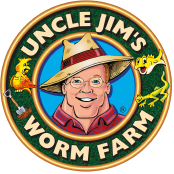

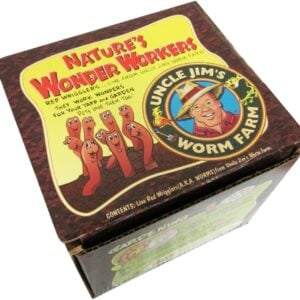
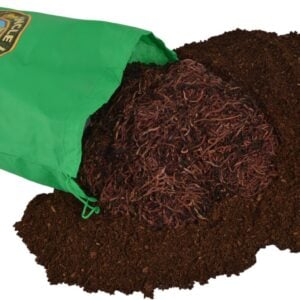
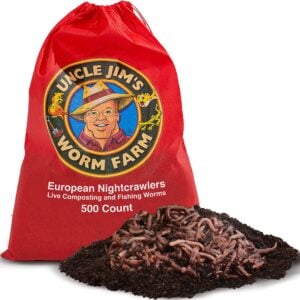


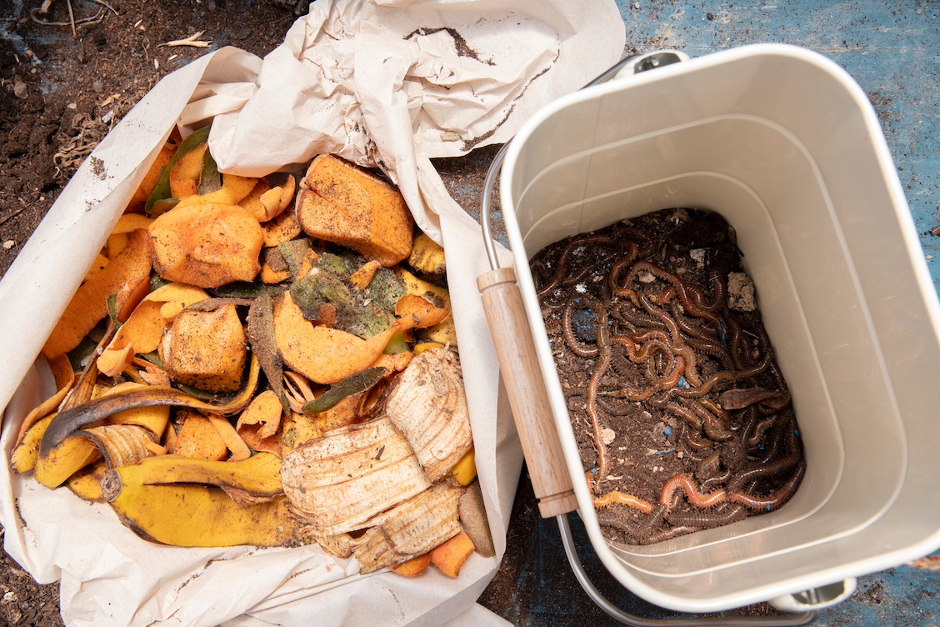
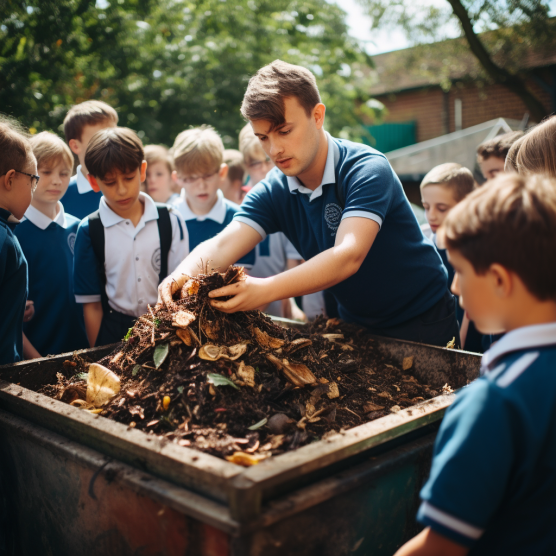
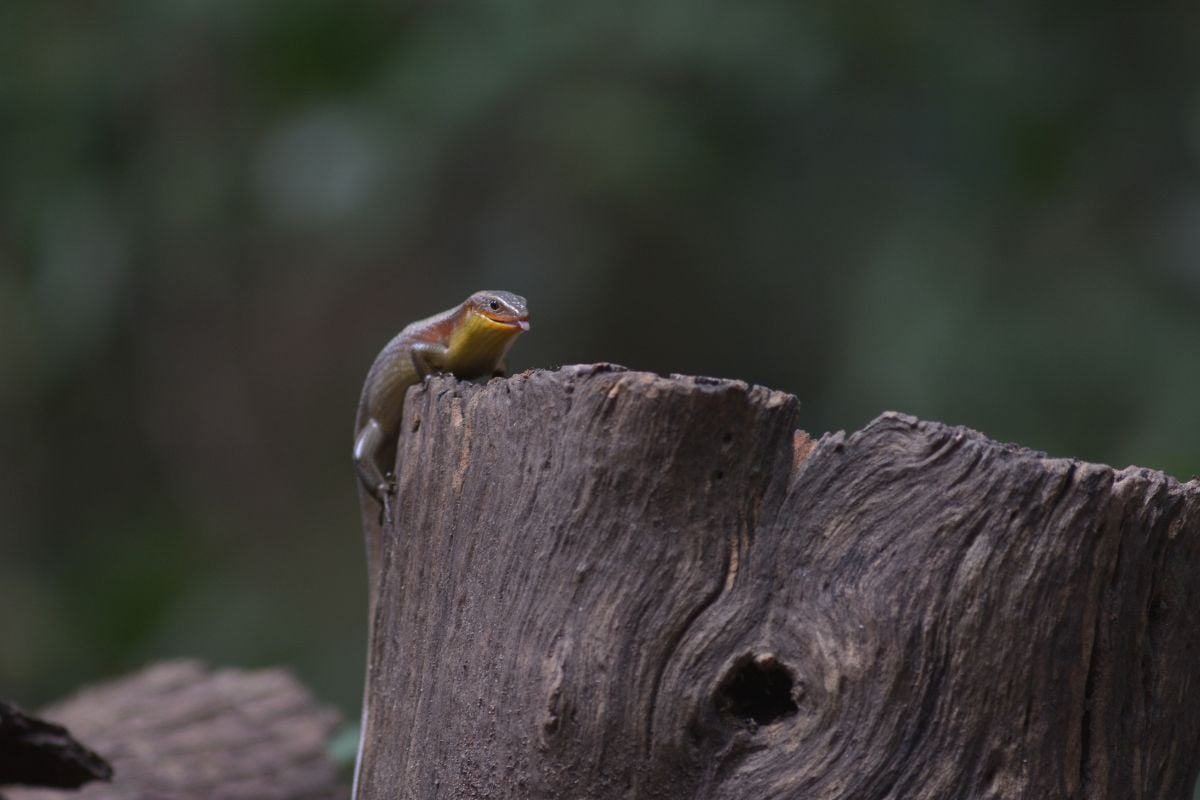
3 thoughts on “Buy or Make Your Own Compost: Is Composting Worth it?”
Can I raise both red worms and night crawlers in the same him at the same time?
I have been doing this very same thing from the beginning of my composting story. I found both types of worms do well together. However; the night crawlers stay more towards the bottom of bin and the red wrigglers are alway right below the surface. From my observation neither one will hinder the operations of the other. and the Night Crawlers break down the more substantial materials that the red wrigglers leave behind. (Banana peel stems, pineapple skins, melon rides, etc. are broken down more quickly by night crawlers).
I feed my worms a combination of shredded paper, banana peels, apple cores and skins and coffee grounds, While there is a good amount of castings, there is a large of amount of yellowish ‘gunk’ (don’t know if that description helps). Am I doing something wrong? If so, is there a fix?